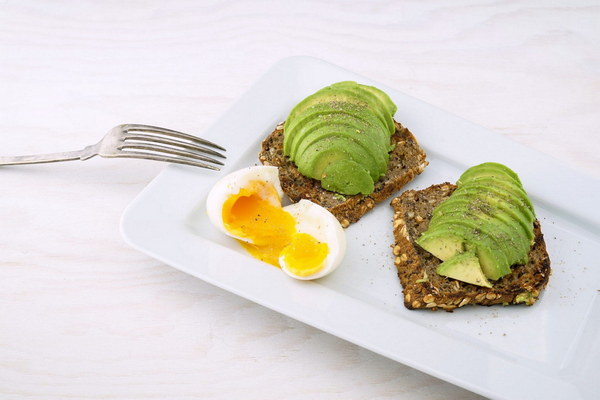The Ultimate Guide to Liver Care How to Nourish and Protect Your Hepatic Health
The Ultimate Guide to Liver Care: How to Nourish and Protect Your Hepatic Health
The liver is a vital organ that plays a crucial role in the body's metabolism, detoxification, and production of bile. Maintaining a healthy liver is essential for overall well-being, as its malfunction can lead to a range of health issues, from mild discomfort to life-threatening conditions. This comprehensive guide will provide you with valuable insights on how to nourish and protect your liver, ensuring its optimal function and longevity.
Understanding Liver Health
Before diving into the practical steps for liver care, it's important to understand the basics of liver health. The liver is responsible for filtering blood, processing nutrients, storing vitamins and minerals, and breaking down harmful substances. It can regenerate damaged tissue, but over time, continuous strain can lead to liver disease.
1. Maintain a Balanced Diet
A balanced diet is the cornerstone of liver health. Here are some key dietary tips:
- Reduce Alcohol Consumption: Alcohol is a significant contributor to liver disease, particularly fatty liver disease and cirrhosis. Limit your alcohol intake to moderate levels or avoid it altogether.
- Increase Fiber Intake: High-fiber foods help to keep your digestive system healthy and can aid in reducing the risk of liver disease. Include fruits, vegetables, legumes, and whole grains in your diet.
- Consume Healthy Fats: Omega-3 fatty acids found in fish, nuts, and seeds can help reduce inflammation in the liver. Avoid trans fats and saturated fats, which can increase the risk of fatty liver disease.
- Limit Processed Foods: Processed foods are often high in salt, sugar, and unhealthy fats, which can stress the liver.
2. Stay Hydrated
Proper hydration is crucial for liver health. Water helps the liver flush out toxins, reducing the risk of liver disease. Aim to drink at least eight glasses of water a day.

3. Exercise Regularly
Regular physical activity can help improve liver function and reduce the risk of obesity, which is a major risk factor for liver disease. Aim for at least 30 minutes of moderate exercise most days of the week.
4. Manage Weight
Obesity is a leading cause of non-alcoholic fatty liver disease (NAFLD). Maintaining a healthy weight through diet and exercise is essential for liver health.
5. Avoid Unprotected Sex and Injecting Drugs
Hepatitis B and C are serious liver diseases that can be transmitted through unprotected sex and sharing needles. Protect yourself by using barrier methods for sex and avoiding drug use.
6. Get Regular Screenings
Certain populations, such as those with a family history of liver disease or certain medical conditions, may benefit from regular liver screenings. Discuss your risk factors with your healthcare provider to determine if screenings are appropriate for you.
7. Use Supplements Wisely
While certain supplements can support liver health, not all are beneficial or safe. Consult with a healthcare provider before starting any new supplement regimen, especially those that can interact with medications or have potential side effects.
8. Manage Chronic Conditions
Conditions such as diabetes, high cholesterol, and high triglycerides can increase the risk of liver disease. Work with your healthcare provider to manage these conditions effectively.
9. Reduce Stress
Chronic stress can contribute to the development of fatty liver disease. Find healthy ways to manage stress, such as mindfulness, meditation, or engaging in hobbies.
10. Quit Smoking
Smoking can damage liver cells and increase the risk of liver disease. Quitting smoking is a significant step towards improving liver health.
By following these steps, you can take proactive measures to nourish and protect your liver, ensuring its proper function and reducing the risk of liver disease. Remember, the health of your liver is a reflection of your overall well-being, so prioritize its care for a healthier life.









